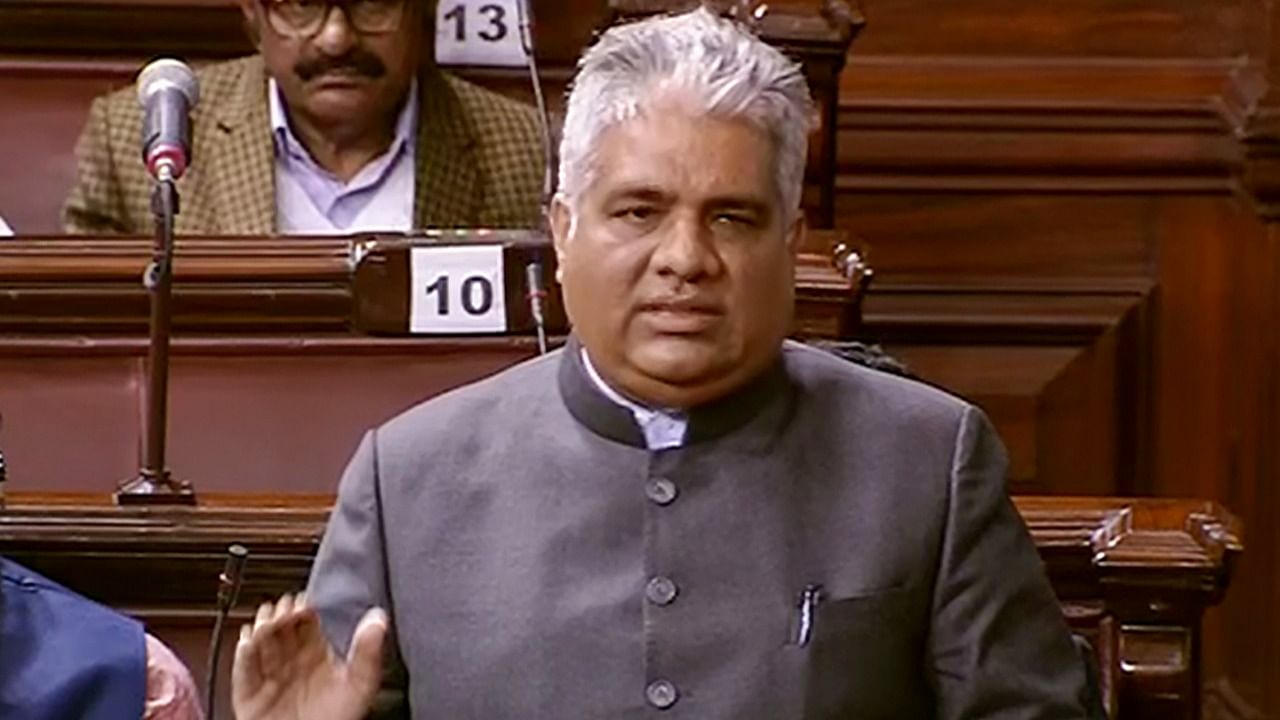
The four labour codes on wages, social security, industrial relations and occupation safety, health and working conditions are likely to be implemented by the next fiscal year as at least 13 states have pre-published draft rules on these laws, a senior official said.
The Centre has already finalised the rules under these codes and now states are required to frame regulations on their part as labour is a concurrent subject.
A senior official said that the four labour codes are likely to be implemented by the next fiscal year.
"The four labour codes are likely to be implemented in the next financial year of 2022-23 as a large number of states have finalised draft rules on these. The Centre has completed the process of finalising the draft rules on these codes in February 2021. But since labour is a concurrent subject, the Centre wants the states to implement these as well in one go," the official said.
Union Labour Minister Bhupender Yadav in a reply to the Rajya Sabha earlier this week had said that the Occupational Safety, Health and Working Conditions Code is the only code on which the least number of 13 states have pre-published the draft rules.
The highest number of draft notifications are pre-published on The Code on Wages by 24 states/UTs followed by The Industrial Relations Code (by 20 states) and The Code on Social Security (18) states.
In his reply to the Upper House, the minister explained that labour is in the Concurrent List of the Constitution and under the Labour Codes, rules are required to be framed by the central government as well as by the state governments.
The central government and some of the States/UTs have pre-published rules under the four labour codes. The central government is pursuing with the remaining state governments to frame the rules under all four Codes, he had said.
The central government has notified four labour codes, namely, the Code on Wages, 2019, on August 8, 2019, and the Industrial Relations Code, 2020, the Code on Social Security, 2020, and the Occupational Safety, Health and Working Conditions Code, 2020 on September 29, 2020.
However, the Centre as well as states are required to notify rules under the four codes to enforce these laws in respective jurisdictions. Under the Codes, the power to make rules has been entrusted to the Central Government, State Government and appropriate Government and there is a requirement of publication of Rules in their official Gazette for a period of 30 or 45 days for public consultation.
As per the minister's reply, draft rules are pre-published by 24 states on The Code on Wages.
These states are Madhya Pradesh, Bihar, Uttarakhand, Karnataka, Uttar Pradesh, Gujarat, Odisha, Punjab, Chhattisgarh, Tripura, Rajasthan, Jharkhand, Arunachal Pradesh, Himachal Pradesh, Haryana, Maharashtra, Goa, Mizoram, Telangana, Assam, Manipur, UTs of Jammu and Kashmir, Puducherry and GNCT of Delhi.
Similarly, the 20 states which have pre-published draft rules on The Industrial Relations Code are Madhya Pradesh, Bihar, Uttarakhand, Uttar Pradesh, Gujarat, Odisha, Punjab, Chhattisgarh, Tripura, Karnataka, Jharkhand, Arunachal Pradesh, Haryana, Himachal Pradesh, Telangana, Manipur, Assam, Goa, UTs of Jammu and Kashmir and Puducherry.
As many as 18 states have pre-published draft rules on The Code on Social Security. These states are Madhya Pradesh, Bihar, Uttarakhand, Uttar Pradesh, Punjab, Chhattisgarh, Odisha, Jharkhand, Arunachal Pradesh, Haryana, Maharashtra, Tripura, Himachal Pradesh, Manipur, Assam, Gujarat, Goa and UT of Jammu and Kashmir.
As many as 13 states have pre-published draft rules on The Occupational Safety, Health and Working Conditions Code. These are Uttarakhand, Uttar Pradesh, Madhya Pradesh, Chhattisgarh, Odisha, Arunachal Pradesh, Haryana, Jharkhand, Punjab, Manipur, Bihar, Himachal Pradesh and UT of Jammu and Kashmir.